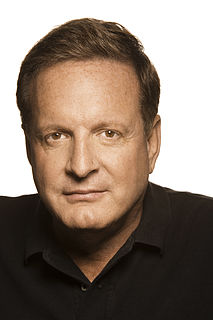A Quote by Ronald Burkle
Supermarket companies are big logistics companies, and one of the ways we've increased profitability in the past is by re-evaluating how they do logistics.
Quote Topics
Related Quotes
Companies that actually survive and flourish are going to change their business model from production to aggregating the networks and the network services and solutions. If you're a construction company or an IT company or a logistics company or an information data operation, to the extent that you can find ways to help build the commons, you can get some commercial value in that.
It is so basic as to be mundane, but in disaster relief, all the good will in the world can go to hell in a hand basket if the logistics don't work. In Ethiopia at the best of times, the logistics are difficult. It is a huge country - about the same size as Texas, New Mexico and Oklahoma combined. It is also a transportation nightmare.
When we first started our internet company, 'China Pages', in 1995, and we were just making home pages for a lot of Chinese companies. We went to the big owners, the big companies, and they didn't want to do it. We go to state-owned companies, and they didn't want to do it. Only the small and medium companies really want to do it.
In this way, it seems to me that, since 1984, my book on the logistics of perception has been proved totally correct. For instance, almost every conflict since then has involved the logistics of perception, including the war in Lebanon, where Israel made use of cheap drones in order to track Yasser Arafat with the aim of killing him.
In many places, above all in the Anglo-Saxon countries, logistics is today considered the only possible form of strict philosophy, because its result and procedures yield an assured profit for the construction of the technological universe. In America and elsewhere, logistics as the only proper philosophy of the future is thus beginning today to seize power over the intellectual world.
Over the past 60 years, marketing has moved from being product-centric (Marketing 1.0) to being consumer-centric (Marketing 2.0). Today we see marketing as transforming once again in response to the new dynamics in the environment. We see companies expanding their focus from products to consumers to humankind issues. Marketing 3.0 is the stage when companies shift from consumer-centricity to human-centricity and where profitability is balanced with corporate responsibility.


































